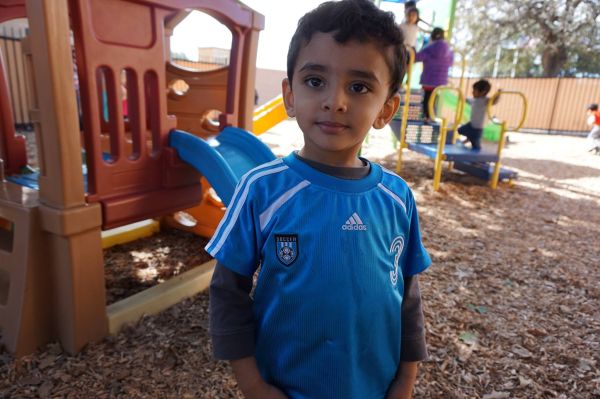As a parent, you probably braced yourself for the terrible twos, but did anyone warn you about the dreadful threes, furious fours, and fitful fives? During these years, you may find yourself at a neighborhood birthday party while your child throws a sprawl-on-the-floor tantrum. You may find yourself shopping to the atonal music of a whining preschooler. And why are your in-laws present whenever your son decides to scream “no!” to every request you make?

If your preschooler is driving you crazy, take heart. You are not alone.
Please Please Please Please
Whining sets your teeth on edge like nothing else. Children whine for several reasons, but most usually to get their way. If you give in to a request against your better judgment, your child is sure to whine again. Being firm and consistent about house rules is vital in putting a kibosh on this behavior.
But consider that whining can also be a bid for loving attention. Have you been busy lately? Is life in your house particularly hectic? Maybe it’s time to carve out some time to play with or read to your child.
No!
The typical image of a sullen teenager is of a frowning, lanky-legged kid who shows disrespect, sass, or stubbornness. How terrifying it is to glimpse the emergence of that behavior in your chubby-cheeked four-year-old! In truth, both behaviors arise from a natural bid for independence. Fortunately, you can outsmart your preschooler in a variety of ways.
• Offer them a choice within your limits. “I’m going to do X. Do you want to put the dirty clothes in the laundry or put these trucks in the bin?”
• Remain calm in the face of opposition. A stubborn preschooler is testing the limits. Your strong reaction may reinforce the behavior.
• Consistency is king. It’s a long, hard slog, but setting house rules and reinforcing them, over and over, goes a long way to quelling behavioral problems.
The Scrunched-Faced, Red-Cheeked, Fist-Throwing Tantrum
You probably hoped that your toddler would grow out of the full-blown temper tantrum phase, but the truth is that many children still struggle with strong emotions and impulse control well into their preschool years. As they are becoming more social, this can also manifest in playground aggression such as kicking, pushing, punching, or biting.
Fortunately, preschool children have higher-level language skills than a toddler. Act fast to separate the child from the situation. Time-outs allow for a cooling period where you can talk them down from their agitated state and encourage them to recognize their strong emotions. Developing emotional awareness is a first step toward better impulse control. So is teaching children how to best handle playground conflicts.
Your maturing children are grappling with a growing sense of independence, a new awareness of the world, and the strong emotions that come with new experiences. With consistent discipline, a little savvy, and a lot of patience, you can nip many of these issues in the bud.





















